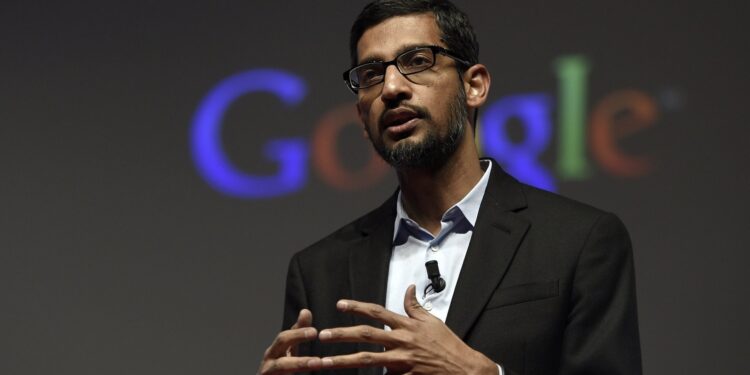Google CEO Sundar Pichai today paid homage to the search giant’s love for AI. Or was it for AI’s love for fairness and equitable growth? In recent remarks at a private Google strategy meeting, which surfaced this week, Pichai stressed the necessity of developing AI technologies that work for everyone and that do not create or reinforce unfair biases.
This fresh attention to the area coincides with Google’s rapid infusing of AI into its products and services. Recent news at Google I/O underscored the company’s progress in generative AI, as more than 30% of new code is now being written by AI and Gemini models are driving all 15 products with more than half a billion users.
This deep integration is further underscored by the introduction of “AI Mode” in Google Search, which launched in the US this week.
Pichai noted that the world is rushing fast towards artificial intelligence and thus it is important to realise “the potential of AI is to empower people.” He doubled down on Google’s existing seven AI principles, which include being socially beneficial, avoiding unfair bias, and being designed and tested for safety.
He stressed the need for strict testing procedures and the inclusion of human oversight to prevent the biases that might appear in training data – data that can reflect broader social biases.
Google, in particular, has made investments in multiple programs to advance the cause of fair AI. These efforts are for the creation of tools that can help quantify and mitigate bias in datasets and models, like the “Know Your Data” tool and the “Monk Skin Tone Scale.”
The company’s Responsible AI team focuses on research and best practices to make AI systems transparent and fair and to serve all communities.
But the road to fair AI is far from straightforward. There are many obstacles such as algorithmic bias, lack of transparency in complex AI models, and the necessity for an array of development teams.
Fairness also must account for the changing meaning of fairness in different scenarios, the portability of definitions of fairness, and scaling the fairness. Budget constraints may also be an issue, because substantial R&D investment is often required for developing the fair AI systems.
Despite these challenges, Pichai’s role guarantees at least that one link in the Google chain of command is willing to remain among those at the very top who want to see AI training handled fairly from all sides.
The company believes that establishing trust while ensuring that AI is used to empower all individuals in society is fundamental to the long-term success and responsible deployment of AI technologies. Google’s focus on fairness will increasingly determine what the impact of AI will be in peoples’ lives and the world.










![Online Scam Cases Continue to Rise Despite Crackdowns on Foreign Fraud Networks [Myanmar] Online Scam Cases Continue to Rise Despite Crackdowns on Foreign Fraud Networks [Myanmar]](https://sumtrix.com/wp-content/uploads/2025/06/30-12-120x86.jpg)




